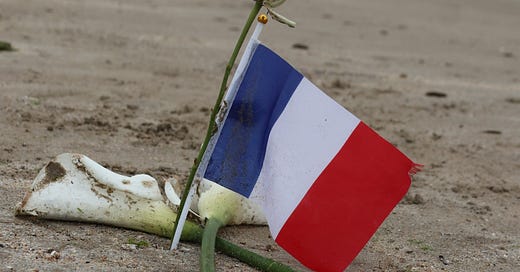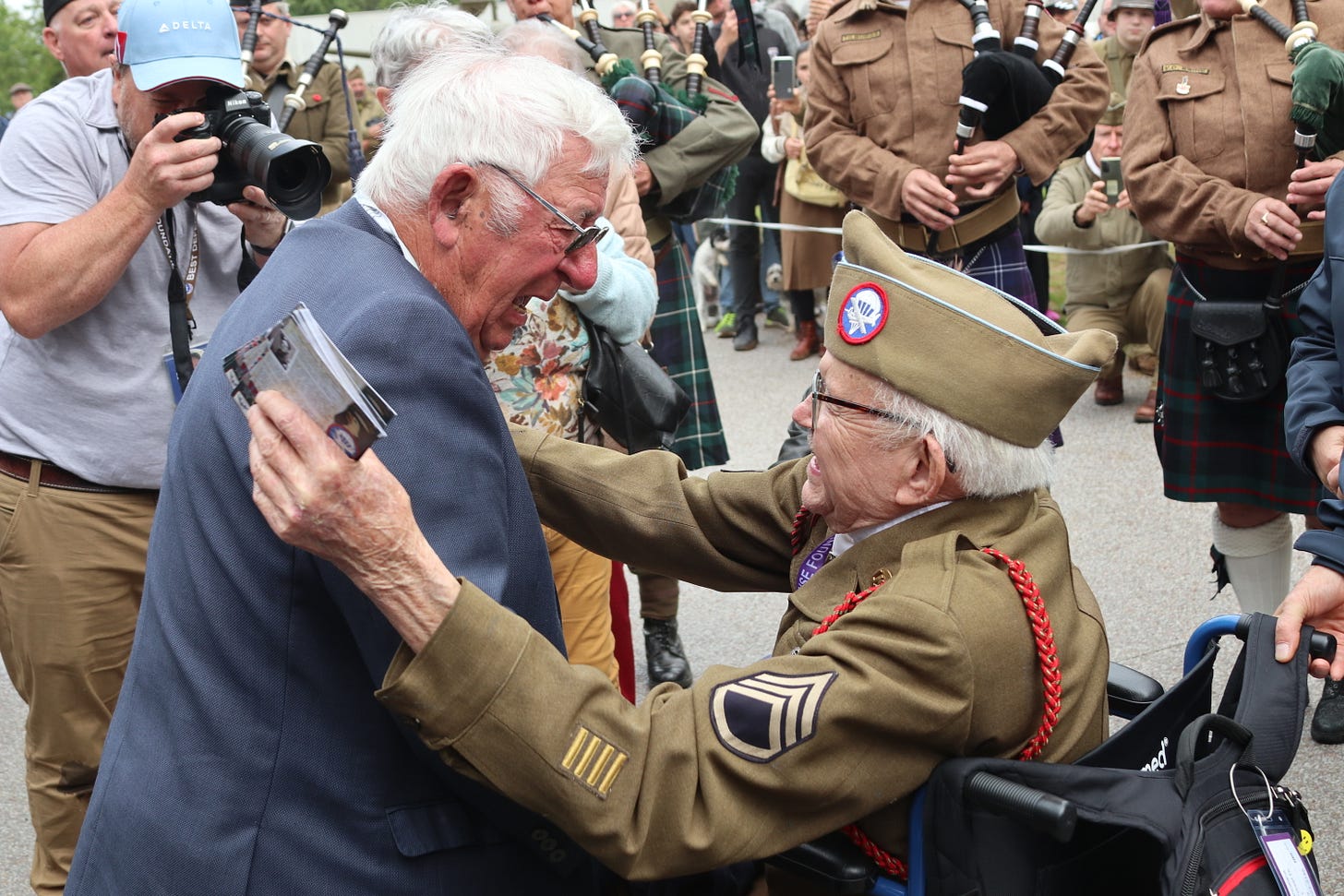Like most other American schoolchildren, I grew up reading textbooks about WWII. I learned that some 400,000 American soldiers were killed during the war, and that families were separated and children were orphaned. But these were just facts and statistics — I could measure the magnitude of war, but didn’t understand it until I landed in Normandy and met the soldiers who lived it.
Now, this classroom was unlike any I have studied in before. We had no desks, chairs, or whiteboards. Lessons were taught on buses, on the sands of Omaha beach, and over the table at dinner, where we would lean in and, in an almost-yell, ask “WHAT. DID. YOU. DO. DURING. THE. WAR?”
And our teachers came from all walks of life. Some had degrees, others didn’t. Some went to college on the GI Bill while others, like Fred Nunguesser, took a month off after the war and then went directly to work. Some, like Tom Garner, stayed in the service, while others, like Miss Betty Rosevear, raised a family and traveled the world.
I could go on and on about the many lessons I learned, but what I remember most isn’t the war stories about coconuts falling on Jeeps, as told by Jack Stowe, or even kamikaze pilots on Iwo Jima, as told by Dick Ramsay. But rather, the quieter private conversations when our conversations shifted from what happened in the past to their concerns about the future. The veterans say it’s quite a different world from the one they grew up in and fought for.
We weren’t supposed to talk about politics on Program, but we really didn’t need to, because the problem wasn’t fundamentally political. When I asked, “What’s wrong with today’s generation?” and time after time, these veterans replied, “People don’t know how to be humans anymore.”
I wondered about this, about what exactly it means to be human and realized that the answer was all around me in Normandy.
On June 6th, for example, while entering the Overlord Museum, I was lucky enough to be in the right place at the right time to witness and photograph the reunion of Raymond Rivoal and George Mullins of the 101st Airborne. Raymond’s family was killed by shelling during the Battle of Carentan. He was orphaned at 8 years old, and was taken in by George’s unit. He was nicknamed “Baby Camp” and made their unofficial mascot, and stayed with the unit until they had to move on. After 81 years of not knowing what had happened to the other, this was the first time they had met since.
I was crying, everyone was crying — it was such a special moment that reminded me that these veterans didn’t fight for land — they fought for people. It’s the same sentiment echoed by a Delta representative a few days later at the farewell lunch, about the importance of connecting the world, for this experience has proved that it’s about the people. Normandy wouldn’t be what it is without the sincere appreciation and love the French people have for these veterans, and this Program wouldn’t even exist without the veterans loving them back and wishing to return.
Nowadays, stories like these are rarer and rarer. As the world keeps telling us to focus inward, we need these to remind us that we’re a part of something bigger than ourselves, and it starts with loving, respecting, and being in relation with people.
These veterans, the greatest teachers I’ve ever had, taught me something I could have never learned inside a classroom: what it truly means to be human.
Back then, it meant sacrifice: being 18 or 19 and storming the beaches of a foreign land to fight for freedom. Today, it means going back to Normandy, 81 years later as victors and slowly heal the brokenness that the war created.
To the people of Normandy, this means showing up year after year to watch our charter flight land, waving French and American flags. Stopping by the side of the street to blow kisses and wave, and standing in the rain for hours just for a chance to say, “You are my heroes”.
To all of us, this means continuing to tell these stories to ensure that as a collective humanity, we never, ever forget.
And as for me? I seek to be a little more human every day, whether that be mailing postcards to veterans, helping George Mullins publish his book, or sending one of my own signed books to Wally King for his great-granddaughters.
81 years ago, WWII taught us how evil humanity can be. We don’t need reminders of that. But this June 6th, I learned just how much good we as people are capable of. And I think that’s a really beautiful thing.







